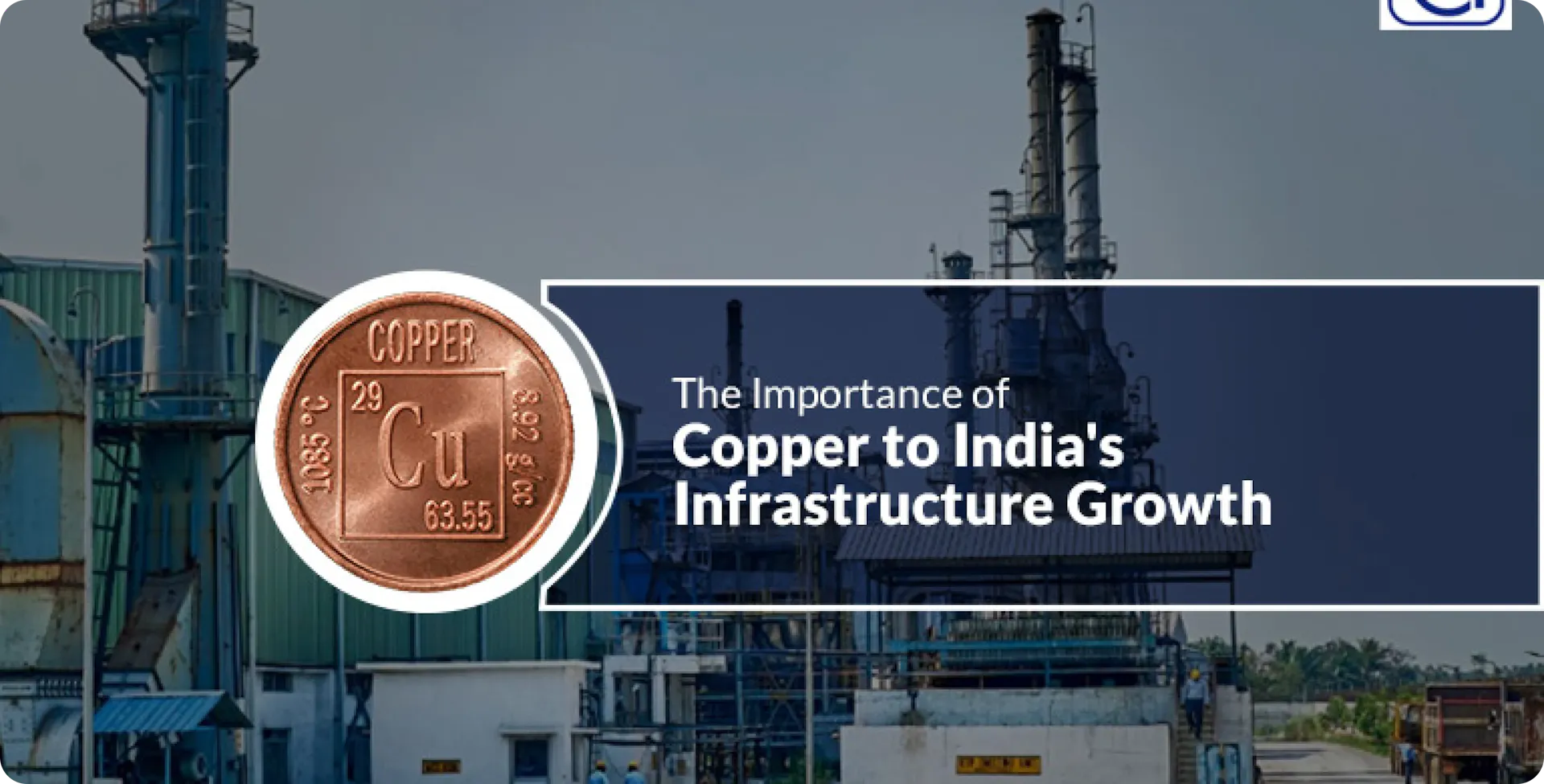
Blog

A Versatile Commodity: Copper's Many Uses
If you ever find yourself pondering why copper is so omnipresent, a closer look at its versatile applications will clear the air. The metal has excellent electrical conductivity, corrosion resistance, and malleability. This trio of characteristics alone makes it indispensable in a range of sectors:
- Electrical Infrastructure :
Copper wiring is the gold standard (pun intended) for electrical circuits. Its conductivity ensures the efficient transmission of electricity, minimising energy loss.
- Telecommunication :
In the era of 5G and the Internet of Things (IoT), copper‘s role is more crucial than ever. Its ability to transmit both electrical and data signals effectively makes it a preferred choice for telecommunications infrastructure.
- Construction :
The robustness of copper pipes makes them ideal for plumbing, heating, and cooling systems. Their longevity translates to less frequent replacements, saving resources in the long term.
- Automotive Sector :
As electric vehicles become more mainstream, the demand for copper in batteries, wiring, and motors is expected to soar.
The Demand-Supply Equation: A Glimpse into Economics
You don‘t have to be an economist to grasp that the laws of demand and supply hold sway over the copper industry. The surge in infrastructure projects across India has elevated the need for copper, causing an uptick in demand.
- Rising Demand :
Urbanisation and industrialization are contributing to increased copper consumption. From basic utilities to advanced technologies, the applications are expansive.
- Limited Supply :
Unfortunately, copper ore is finite. Over-reliance on imports has its pitfalls, including volatile global market conditions. This gap in supply and demand underscores the importance of domestic Cuprous chloride manufacturers in India and Cuprous chloride suppliers in keeping the wheels of progress turning.
- Price Fluctuations :
A mismatch in demand and supply often results in price volatility. Such instability can be detrimental to long-term projects that require a steady inflow of resources.
Environmental Benefits: A Sustainable Choice
In an age where sustainability isn‘t just a buzzword but a necessity, copper stands out for its environmental benefits:
- Recyclability :
Copper can be repurposed without losing any quality. This not only conserves the resource but also requires less energy compared to mining new ore.
- Energy Efficiency :
Copper‘s high conductivity means less energy is lost as waste heat, thereby reducing the carbon footprint of electrical systems.
- Health Benefits :
Its natural anti-microbial properties make copper surfaces less conducive for bacterial and viral growth, contributing to healthier living environments.
Infrastructure Sectors Most Impacted by Copper
When we talk about infrastructure development, we‘re not limiting ourselves to just skyscrapers or highways. Copper‘s influence reaches far beyond that, making a significant impact on various critical sectors:
- Energy Sector :
Renewable energy systems, especially solar panels and wind turbines rely heavily on copper for their efficient operation. Copper‘s conductivity ensures that energy loss is minimised, making the systems more sustainable.
- Transport :
The role of copper in modern transportation infrastructure is immense, especially with the rise of electric vehicles (EVs). Copper is essential in the manufacturing of efficient, lightweight batteries, electric motors, and the charging infrastructure for EVs.
Healthcare :
From medical devices to hospital infrastructure, copper is key. Its antimicrobial properties make it an ideal material for surfaces in healthcare settings, helping to reduce the spread of infections.
- Water Supply :
Clean water distribution relies on copper pipes, which do not corrode easily and thus maintain the quality of water. In water treatment plants as well, copper&lsquo biostatics properties help in algae control, enhancing the efficiency of these facilities.
The Local Vs. Global Context: Why Domestic Manufacturing Matters
The phrase “think globally, act locally“ couldn‘t be more relevant when considering the production and supply of copper chemicals. Here‘s why domestic manufacturing can be a game-changer:
- Economic Independence :
By bolstering local Cuprous chloride manufacturers in India, we reduce reliance on imports, which is vital for national economic stability. Local manufacturing also aids in job creation and skill development within the country.
- Supply Chain Resilience :
The COVID-19 pandemic has laid bare the vulnerabilities of global supply chains. Focusing on domestic production adds a layer of security, ensuring that key infrastructure projects are not hampered by global market fluctuations or geopolitical tensions.
- Quality Control :
Local manufacturing often allows for tighter quality controls. Copper suppliers within the country can adhere to specific regional standards, ensuring that the end product is consistent and of high quality.
- Sustainability :
Reduced transportation for locally sourced materials means a lower carbon footprint. When considering the environmental impact of any project, this is a significant advantage.
Copper‘s Contribution to Indian Infrastructure
Copper's influence on India's burgeoning infrastructure cannot be overstated. From powering your homes to facilitating complex industrial processes, its applications are as varied as they are numerous. As a key player in the copper chemical industry, Meghachem recognizes the vital role that copper, particularly Cuprous chloride, plays in modern life. If you're interested in learning more about how Meghachem can support your infrastructure needs, contact us today. Our commitment to quality and sustainability sets us apart as one of the leading Copper manufacturers in India.
